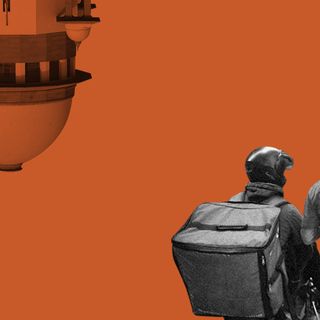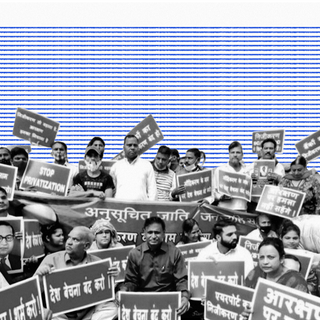Yesterday, the Kerala High Court strongly criticized the abusive behavior of the Indian police force towards the country’s citizenry — attributing it to their notions of superiority over the public, stemming from a colonial mindset.
“Police still don’t know how to use polite and civilized language, do they?” Justice Devan Ramachandran said, lamenting further that “no matter how many times we say, our police force won’t change. They will continue with the attitude and system we had in colonial times, a hundred years ago.”
Justice Ramachandran was hearing different matters concerning the harassment of ordinary citizens by police officers, especially regarding verbal abuse and usage of derogatory terms towards them. In one instance, the police reportedly stopped a medical practitioner’s car and disrespectfully addressed him as “eda” while abusing him verbally. In another example, the police harassed an 89-year-old man from an economically deprived background, who is also undergoing treatment for his mental health.
However, this is not the first time the Kerala High Court has condemned the harassment of citizens by the police force.
Earlier this month, Justice Ramachandran had criticized the police for verbally abusing a minor accused of violating Covid19 protocols. “[T]here can be no doubt that the citizens have to comply with the protocols put in place, but this cannot be done… in violation of civilized behavior… which are inbuilt into the system of policing in a cultured society,” he had stated, adding that “it is now imperative for this court to declare that such use by any member of the force is contrary to the constitutional morality and conscience of our country and is antipodean to the ethos of a democratic system.”
Related on The Swaddle:
Why Mumbai Police’s ‘Nirbhaya Squad’ Won’t Help Correct Rape Culture
Despite the censure, the behavior has seemingly continued. Moreover, this attitude of the police force isn’t just restricted to Kerala. “Instead of policing through public consent and participation, the police use abuse and threats as a primary crime investigation and law enforcement tactic,” a 2009 report on the Indian police by Human Rights Watch (HRW) states.
HRW found that it may not be a fault of individual police officers but of the system that they are a part of. Reportedly, some officers admitted to receiving instructions to commit abuse — suggesting that this is an issue deeply rooted in institutional practice. “The institutional culture of police practically discourages officers from acting otherwise, failing to give them the resources, training, ethical environment, and encouragement to develop professional police tactics,” the report added.
Just last year, when the government imposed the first lockdown, reports emerged that the police were using physical punishments to enforce protocols. In addition to beating people up with batons, some of the punishments meted out by the police were the kind used to punish students in schools — like making them do ‘frog jumps’ in the middle of the street — further attesting to their air of superiority over the public.
Often, economically deprived individuals are targeted, probably under the assumption that they wouldn’t have the privilege to pursue action against the misbehavior of the police force.
“[Such behavior] is anathema to a civilized and cultured force and [is] the relic of the colonial subjugation tactics,” Justice Ramachandran noted, adding that “they have no place in a free country marching in pace with [the] needs and requirements of the 21st century.”




